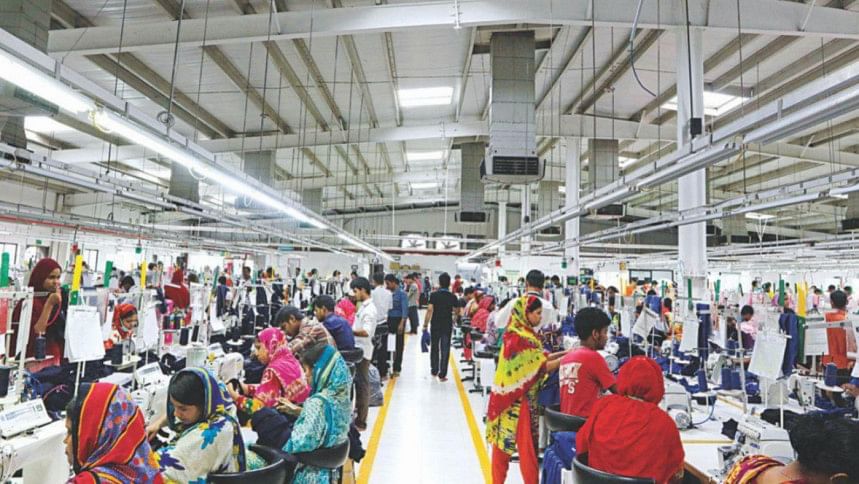RMG exports to US continue to decline

Apparel shipments from Bangladesh to the United States have continued its downward trend for the past several months due to slowdown in the sourcing of garment items by American retailers and brands because of higher inflationary pressure.
Consumer spending on non-essential items such as apparel articles decelerated last year, which caused old inventories to pile up in stores in the world's biggest economy, which is Bangladesh's single largest export destination.
The sales finally picked up in the festive months of November and December ahead of the holiday shopping season, including Black Friday, Cyber Monday, and Christmas.
Owing to lower consumer spending, garment shipments from Bangladesh to the US declined 24.91 percent year-on-year to $6.79 billion in the January-November period last year, according to data from the Office of the Textile and Apparel (OTEXA) of the US.
If textile and apparel are considered together, the export from Bangladesh declined 25.41 percent to $6.95 billion.
The shipment of garment items to the US from other countries such as China, Vietnam, India, and Pakistan also declined during the period. It decreased 22.40 percent to $72.40 billion.
Of the major supplying nations, garment shipments from China fell 25.85 percent to $15.21 billion and Vietnam's sales declined 22.68 percent to $13.17 billion.
The shipment from India was down 21.53 percent to $4.18 billion. It fell 28.05 percent to $1.85 billion for Pakistan.
The global consumer spending outlook was gloomy last year due to the higher inflationary pressure stemming from the severe fallout of the Covid-19 pandemic and the Russia-Ukraine war.
International retailers and brands had to alter their plans in the middle of 2023 as there was political turmoil in the country ahead of the national polls, held on January 7, said Shams Mahmud, managing director of Shasha Denims, which ships 10 percent of its total denims to the US annually.
However, as the political cloud dissipates, US-based retailers and brands are sending a lot of inquiries to local suppliers. So, it is expected that the shipment of garment items to the US will rebound soon, he added.
The November receipts of garment shipments reflect the shipment of goods sent in August and September, the months when production in local garment factories was disrupted due to political unrest. Production was also hampered at that time as garment workers agitated for increased wages.
Faruque Hassan, president of the Bangladesh Garment Manufacturers and Exporters Association (BGMEA), echoed Mahmud's sentiments, saying the demand for clothing items in the US was low last year.
He added that demand was expected to go up from February or March as old inventories were greatly depleted during festive sales late last year.
In October and November, consumers showed their ability to spend, with spending on both goods and services growing 5.2 percent year-over-year unadjusted for inflation, according to a statement by Jack Kleinhenz, chief economist of the National Retail Federation (NRF), a platform for American retailers.
Households accelerated their spending on services, which returned to pre-pandemic levels of approximately 65 percent of consumption.
Disposable personal income was up 7 percent year-over-year, much faster than earlier in the year, and helped boost consumer purchases.
Core retail sales as defined by the NRF -- excluding automobile dealers, gasoline stations and restaurants -- were up 3.3 percent unadjusted year-over-year on a three-month moving average as of November and up 3.7 percent in the first 11 months of 2023.
"While we are waiting for the December figures to be released, spending is on track to meet our projection for sound holiday shopping season growth between 3 percent and 4 percent over 2022," the NRF said.

 For all latest news, follow The Daily Star's Google News channel.
For all latest news, follow The Daily Star's Google News channel. 




Comments